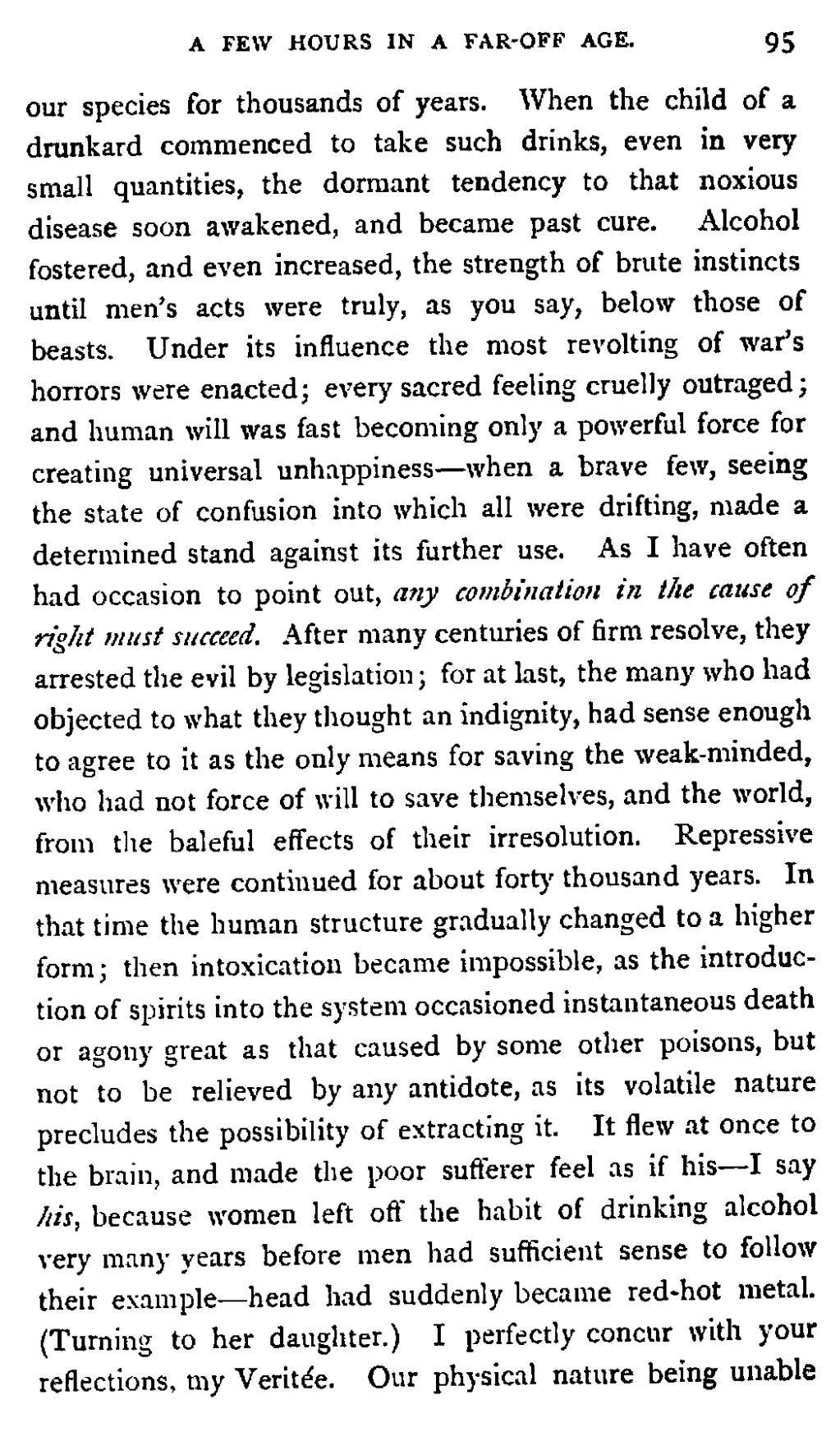our species for thousands of years. When the child of a drunkard commenced to take such drinks, even in very small quantities, the dormant tendency to that noxious disease soon awakened, and became past cure. Alcohol fostered, and even increased, the strength of brute instincts until men's acts were truly, as you say below those of beasts. Under its influence the most revolting of war's horrors were enacted; every sacred feeling cruelly outraged; and human will was fast becoming only a powerful force for creating universal unhappiness—when a brave few, seeing the state of confusion into which all were drifting, made a determined stand against its further use. As I have often had occasion to point out, any combination in the cause of right must succeed. After many centuries of firm resolve, they arrested the evil by legislation; for at last, the many who had objected to what they thought an indignity, had sense enough to agree to it as the only means for saving the weak-minded, who had not force of will to save themselves, and the world, from the baleful effects of their irresolution. Repressive measures were continued for about forty thousand years. In that time the human structure gradually changed to a higher form; then intoxication became impossible, as the introduction of spirits into the system occasioned instantaneous death or agony great as that caused by some other poisons, but not to be relieved by any antidote, as its volatile nature precludes the possibility of extracting it. It flew at once to the brain, and made the poor sufferer feel as if his—I say his, because women left off the habit of drinking alcohol very many years before men had sufficient sense to follow their example—head had suddenly became red-hot metal. (Turning to her daughter.) I perfectly concur with your reflections, my Veritée. Our physical nature being unable

